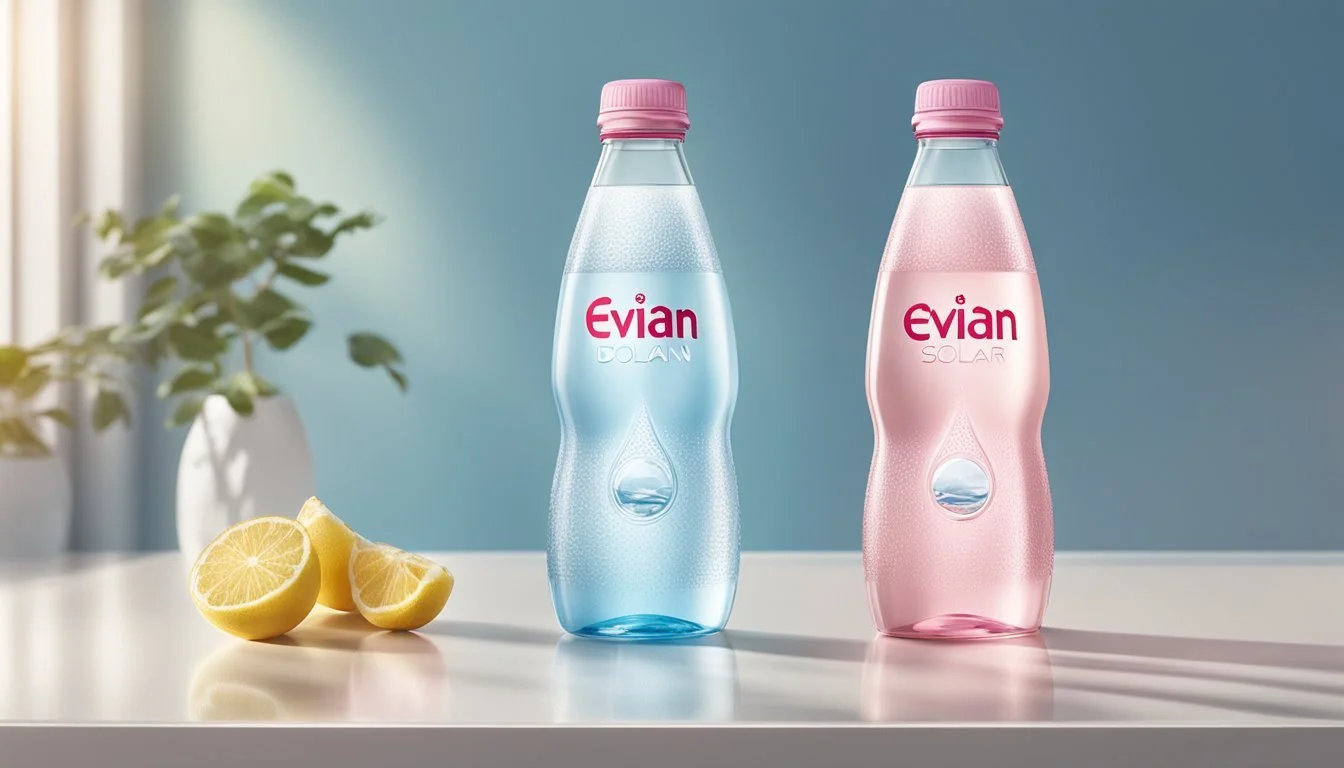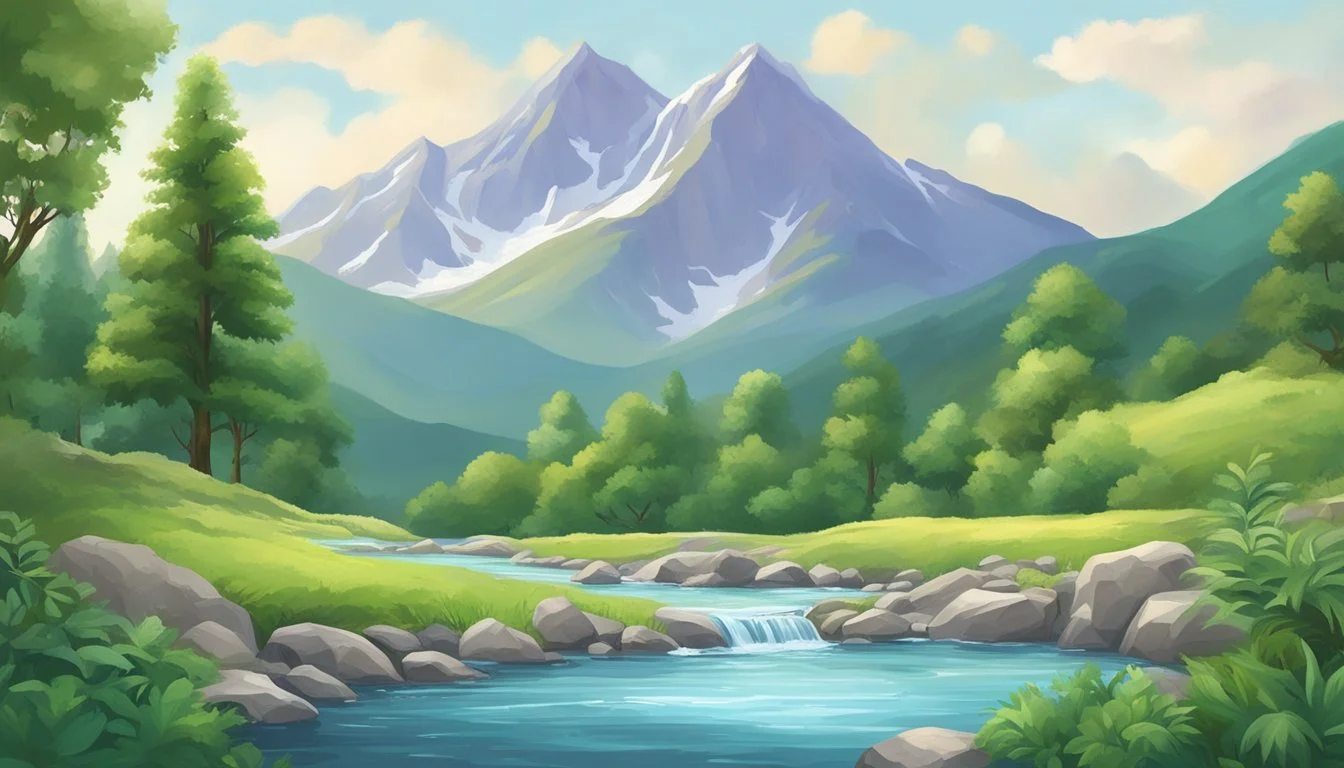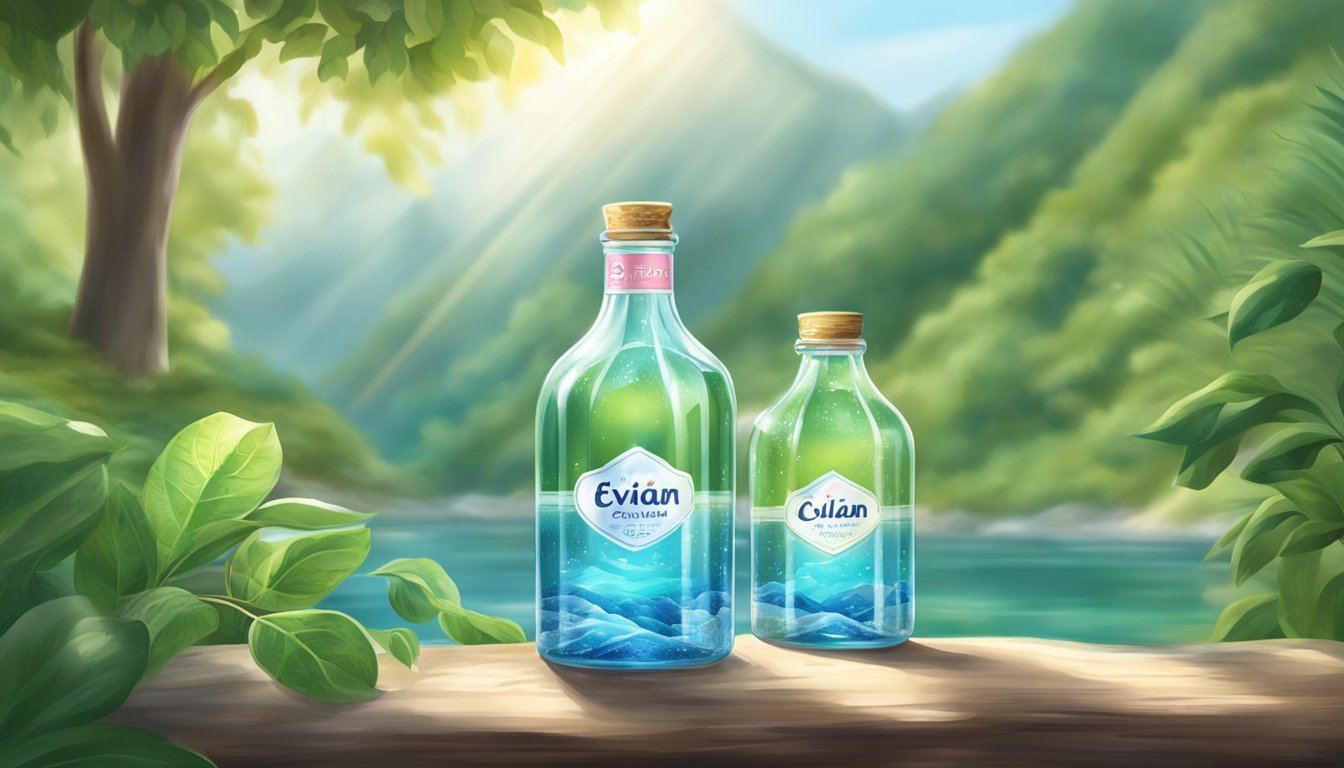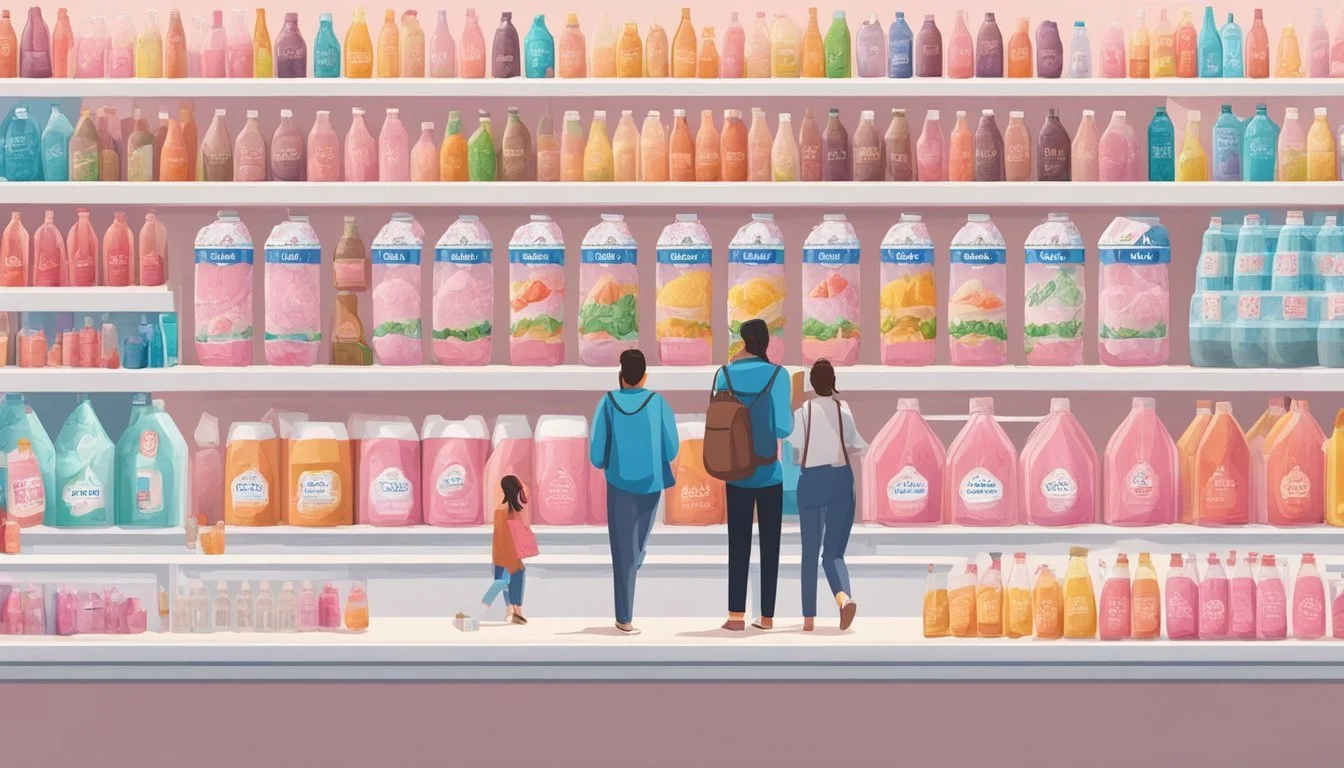Evian vs. Solán de Cabras
Comparing the Best Bottled Waters
Bottled water has become a staple in many households, with brands like Evian and Solán de Cabras standing out for their premium quality and distinctive tastes. Evian, sourced from the French Alps, is renowned for its crisp and clean flavor that reflects its journey through glacial rocks. Many consumers appreciate Evian for its natural mineral composition that provides a refreshing experience and a sense of luxury.
Solán de Cabras, on the other hand, is celebrated for its purity and unique history. Originating from the Serranía de Cuenca in Spain, this water has been naturally filtered through ancient geological formations for over 3,600 years. The blue glass bottle and premium pricing emphasize its status as a high-end choice for discerning individuals.
When comparing Evian and Solán de Cabras, it ultimately comes down to personal preference regarding taste and brand perception. Both offer exceptional quality, but each caters to a different audience. For those seeking a sophisticated, mineral-rich option, Evian is the go-to, whereas Solán de Cabras appeals to those who value historical prestige and exceptional purity.
History and Brand Origins
Both Evian and Solán de Cabras have rich histories that highlight their unique origins and development over the centuries. Their stories are rooted in specific geographic regions and historical eras, underscoring their lasting appeal and enduring quality.
Evian: From the French Alps to Global Presence
Evian's story began in 1901 when natural spring water was discovered in the town of Évian-les-Bains, located in the picturesque French Alps.
The water source, named Cachat Spring, was believed to have healing properties, attracting visitors from far and wide. The town's scenic beauty and the pure, mineral-rich water quickly gained prominence.
Initially marketed as a medicinal remedy, the brand leveraged its reputation for purity and quality to expand globally. Today, Evian is synonymous with luxury and well-being, and its iconic tear-shaped bottle is a testament to its prestigious heritage.
Solán de Cabras: A Spanish Heritage of Purity
Solán de Cabras traces its origins back to ancient Roman times when thunderstorms in the Serranía de Cuenca, Spain, marked the beginning of its pristine water source over 3,600 years ago.
The brand's name is derived from the nearby "Solán" area, and it has grown to represent purity and authenticity in the world of bottled water.
Packaged in its signature blue glass bottle, Solán de Cabras has been a favorite for those seeking exceptional quality. Its long-standing heritage and commitment to natural purity make it a distinguished choice, celebrated for its historical and geographic significance.
Source and Natural Composition
Evian and Solán de Cabras are distinguished by their unique sources and mineral compositions, which contribute to their distinctive tastes and health benefits.
Evian: Filtered Through Glacial Sand
Evian water originates from a single underground spring near Lake Geneva.
Stormwaters from the French Alps filter through glacial sand over 15 years. This natural filtration process imbues the water with minerals.
Evian's mineral content includes calcium, magnesium, and potassium. These minerals are absorbed from the glacial sand, giving Evian its distinct taste and health benefits.
The slow filtration process ensures purity, making Evian a favored choice among those who appreciate its natural spring water quality.
Solán de Cabras: The Flow from Spanish Mountains
Solán de Cabras water comes from a spring in the Serranía de Cuenca mountains of Spain.
Thunderstorms replenish this source, where water flows through geological formations over millennia. This extended journey enriches it with minerals.
Solán de Cabras' mineral composition includes calcium, magnesium, and bicarbonates. The water is bottled at the source, ensuring it retains its purity and natural composition.
The distinctive blue glass bottle not only preserves the quality but also underscores its premium nature.
Processing and Purity
Evian and Solán de Cabras are two of the most renowned bottled water brands, and their processing methods and purity standards offer insight into their quality and safety.
Filtration Process: Ensuring Safety and Clarity
Evian water undergoes a meticulous filtration process that begins at its source in the French Alps. The water takes a 15-year journey through glacial rock, naturally filtering and enriching it with minerals. Upon collection, Evian uses a multi-stage filtration system to remove any remaining impurities.
Solán de Cabras, sourced from the Serranía de Cuenca mountains in Spain, boasts a history of over 3,600 years of natural filtration through geological layers. This process enriches the water with essential minerals while ensuring its purity. The final filtration steps focus on preserving the natural balance, safety, and clarity of the water.
Comparative Analysis of Water Purity Standards
Evian adheres to strict purity standards set by the Environmental Protection Agency (EPA) and the World Health Organization (WHO). Regular testing ensures that any trace contaminants are within acceptable levels. The brand's commitment to sustainability is reflected in its use of 100% recycled PET bottles and plans for a carbon-neutral production site in 2024.
Solán de Cabras also meets rigorous purity standards, ensuring no harmful impurities. The brand's natural mineral composition and stringent testing processes align with international safety guidelines. Packaged in distinctive blue glass bottles, Solán de Cabras maintains an image of premium quality.
Both Evian and Solán de Cabras excel in their filtration processes and purity standards, making them highly trusted sources of bottled water.
Health and Wellness Benefits
Both Evian and Solán de Cabras bottled waters offer distinct benefits that impact hydration, digestion, and overall fluid balance. The specific mineral content in each brand contributes differently to these aspects, influencing various body functions.
Hydration and Fluid Balance
Proper hydration is essential for maintaining fluid balance, and both Evian and Solán de Cabras excel in this regard.
Evian water contains a balanced mix of minerals, including calcium and magnesium, which are crucial for bone health and muscle contraction. The slightly alkaline pH of Evian (around 7.2) may also aid in overall hydration.
Solán de Cabras, recognized for its mineral-rich profile, similarly supports hydration. The water's mineral composition helps replenish electrolytes, essential for maintaining the body's fluid equilibrium. This ensures that cells function optimally and reduces the risk of dehydration.
Influence on Digestion and Metabolism
The mineral content in Evian and Solán de Cabras also plays a role in digestive health and metabolism.
Evian's magnesium content is particularly beneficial for digestion and can help regulate muscle contractions in the digestive tract. This contributes to smoother digestion and less digestive discomfort.
Solán de Cabras water, known for its unique mineral balance, may aid metabolic processes and nutrient absorption. The natural minerals present can help enhance enzymatic activities necessary for breaking down food, thus supporting a healthy metabolism.
Both brands offer benefits that extend beyond hydration, making them excellent choices for those looking to improve their health and wellness through quality bottled water.
Environmental and Packaging Considerations
The environmental impact and packaging of bottled water are crucial factors in determining its overall sustainability. This section will explore the implications of plastic bottles on the environment and innovations in eco-friendly packaging by both Evian and Solán de Cabras.
The Impact of Plastic Bottles on the Environment
Plastic water bottles, predominantly made from PET (polyethylene terephthalate), present significant environmental challenges. They contribute to pollution due to their resistance to decomposition, often taking hundreds of years to break down.
The production of these bottles also releases considerable amounts of CO2, exacerbating climate change. For every 50 oz of bottled water produced, up to 22 oz of CO2 may be emitted. Moreover, plastic water bottles frequently end up in oceans, harming marine life and ecosystems.
Innovations in Sustainable Packaging
Both Evian and Solán de Cabras have initiated steps toward more sustainable packaging solutions. Evian has introduced recycled plastic (rPET) to decrease dependency on virgin plastic. They aim for all plastic bottles to be made from 100% recycled materials by a specific target year.
Solán de Cabras emphasizes its use of eco-friendly materials, including glass bottles and plant-based plastics. These innovations help reduce the environmental footprint of their packaging, aiming to create a more sustainable bottled water industry.
Market Presence and Consumer Choices
Evian and Solán de Cabras are prominent names in the bottled water industry, each delivering unique attributes to consumers. The availability in stores and the popularity among water drinkers are crucial factors that shape their market presence and influence choices.
Availability in Drugstores and Convenience Stores
Evian can be found in numerous drugstores and convenience stores worldwide. Places like Walgreens, CVS, and 7-Eleven routinely stock Evian due to its high demand and reliable supply chain. This availability ensures consumers can easily purchase Evian without needing to seek specialized outlets.
Solán de Cabras has a more limited presence in everyday drugstores and convenience stores, particularly outside of Spain. In the U.S., it is more often found in select high-end grocery stores or specialized shops. Limited distribution channels might require consumers to visit specialty stores or order online to access Solán de Cabras.
Popularity Among Water Drinkers
Evian enjoys widespread popularity among health-conscious water drinkers who prioritize natural mineral content and purity. Its reputation is built on consistency in taste and quality, fostering a loyal consumer base. Evian's marketing strategies, which emphasize its natural filtration and mineral-rich profile, resonate well with a broad audience.
Solán de Cabras appeals to those seeking a premium and exclusive brand experience. Packaged in distinctive blue glass bottles, it targets a niche market segment looking for elegance and quality. Though it might not match Evian in global recognition, it holds a prestigious spot among discerning water aficionados and luxury brand enthusiasts.
This focus highlights essential facets like store accessibility and consumer preferences, giving a rounded view of both brands' market impact.
Comparative Taste Profile
Comparing the taste of Evian and Solán de Cabras bottled water reveals differences influenced by their unique sources and mineral compositions. Both brands are renowned for their distinctive tastes, enhanced by the natural landscapes they originate from.
The Role of a Water Sommelier
A water sommelier uses a finely tuned palate to distinguish subtle differences in water. These experts assess factors like mineral content, pH levels, and source.
Evian is known for its slightly alkaline taste due to a pH level of 7.07. Solán de Cabras, sourced from Spain, features a mineral composition resulting in a clean and pure taste with a hint of sweet.
Professional tasters highlight how these attributes affect the drinking experience, with Evian often described as smooth and crisp, while Solán de Cabras offers a refreshing and subtly sweet profile.
Evian and Solán de Cabras: Sensory Experience
Tasting Evian reveals a smooth, almost silky texture that is refreshing. Its slight alkalinity gives it a mild aftertaste that is often described as clean and invigorating. This brand is often favored by those who enjoy a simple yet satisfying water experience.
Solán de Cabras, on the other hand, delights with a hint of sweetness and a crystal-clear taste. Its unique mineral balance provides a refreshing and well-rounded mouthfeel. The water's purity and slight sweetness differentiate it from others, making it a preferred choice for those seeking an elegant and refined water experience.
In summary, both Evian and Solán de Cabras offer unique and pleasurable tasting experiences, each with distinct characteristics that reflect their natural origins.
Brand Positioning and Endorsements
Evian and Solán de Cabras utilize distinct strategies to position themselves in the premium bottled water market. By leveraging celebrity endorsements, iconic advertising campaigns, and unique market strategies, they build a strong brand presence and appeal to their target audiences.
Celebrity Influence and Advertising
Celebrity endorsements play a significant role in the marketing tactics of both Evian and Solán de Cabras. Jennifer Aniston has promoted Evian, helping to enhance the brand's appeal with her widespread popularity. Such celebrity influence lends credibility and desirability, making Evian synonymous with luxury and health.
Solán de Cabras, on the other hand, focuses less on individual celebrity endorsements and more on a refined image. It emphasizes exclusivity and luxury through its unique blue glass bottle, aiming to appeal to a sophisticated audience without relying heavily on celebrity faces.
Evian's Iconic Campaigns
Evian's advertising strategy is well-known for its memorable and effective campaigns. One prominent example is the "Live Young" campaign, which featured images and videos of babies engaging in adult-like activities. This campaign captured widespread attention and underscored Evian's message of youthfulness and vitality.
Owned by Danone, Evian also emphasizes its natural origins from the French Alps. This is showcased in advertisements highlighting the purity and mineral composition of the water. The brand's marketing often combines elements of health and wellness with high-quality imagery, reinforcing its premium positioning.
Solán de Cabras' Market Strategy
Solán de Cabras leverages its history and distinctive branding to position itself in the market. Originating from Spain, this bottled water brand emphasizes purity and natural sourcing, often highlighting the fact that its water has been naturally filtered over centuries of geological activity.
The brand’s strategy includes placing its product in high-end restaurants and gourmet stores, emphasizing exclusivity. Solán de Cabras also uses online and print media to convey messages of authenticity and historical significance, appealing to a discerning customer base looking for an exceptional quality product.
In summary, both brands use distinct yet effective methods to establish their presence in the premium bottled water market, whether through celebrity endorsements, unique advertising strategies, or targeted market positioning.
More About Evian
Evian vs Mountain Valley Spring Water: Which Bottled Water is Better?
Evian vs Richard's Rainwater: Which Bottled Water is Better?
Evian vs Whole Foods Italian Still Mineral water: Which Bottled Water is Better?
More About Solán de Cabras
Acqua Pana vs Solan de Cabras: Which Bottled Water is Better?
Antipodes vs Solan de Cabras: Which Bottled Water is Better?
Aqua Carpatica vs Solan de Cabras: Which Bottled Water is Better?
Arrowhead vs Solan de Cabras: Which Bottled Water is Better?
Boxed Water vs Solan de Cabras: Which Bottled Water is Better?
Castle Rock vs Solan de Cabras: Which Bottled Water is Better?
Core Hydration vs Solan de Cabras: Which Bottled Water is Better?
Deer Park vs Solan de Cabras: Which Bottled Water is Better?
Hawaiian Springs vs Solan de Cabras: Which Bottled Water is Better?
Ice Mountain vs Solan de Cabras: Which Bottled Water is Better?
Icelandic Glacial vs Solan de Cabras: Which Bottled Water is Better?
Just Water vs Solan de Cabras: Which Bottled Water is Better?
Mountain Valley Spring Water vs Solan de Cabras: Which Bottled Water is Better?
Nestle Pure Life vs Solan de Cabras: Which Bottled Water is Better?
Poland Spring vs Solan de Cabras: Which Bottled Water is Better?
San Pellegrino vs Solan de Cabras: Which Bottled Water is Better?
Smartwater vs Solan de Cabras: Which Bottled Water is Better?
Solan de Cabras vs 1907water: Which Bottled Water is Better?
Solan de Cabras vs Alkaline88: Which Bottled Water is Better?
Solan de Cabras vs Big Chill: Which Bottled Water is Better?
Solan de Cabras vs BodyArmor: Which Bottled Water is Better?
Solan de Cabras vs Cascade Mountain: Which Bottled Water is Better?
Solan de Cabras vs CBD Living: Which Bottled Water is Better?
Solan de Cabras vs Crystal Geyser: Which Bottled Water is Better?
Solan de Cabras vs Crystal Lake: Which Bottled Water is Better?
Solan de Cabras vs Essence pH10: Which Bottled Water is Better?
Solan de Cabras vs Hawaii Volcanic: Which Bottled Water is Better?
Solan de Cabras vs Kirkland Signature: Which Bottled Water is Better?
Solan de Cabras vs Liquid Death: Which Bottled Water is Better?
Solan de Cabras vs Open Water: Which Bottled Water is Better?
Solan de Cabras vs Proud Source: Which Bottled Water is Better?
Solan de Cabras vs Pure Life: Which Bottled Water is Better?
Solan de Cabras vs Purely Sedona: Which Bottled Water is Better?
Solan de Cabras vs Richard's Rainwater: Which Bottled Water is Better?
Solan de Cabras vs Simple Truth: Which Bottled Water is Better?
Solan de Cabras vs Talking Rain AQA: Which Bottled Water is Better?
Solan de Cabras vs Weird Water: Which Bottled Water is Better?
Solan de Cabras vs Whole Foods 365: Which Bottled Water is Better?
Solan de Cabras vs Whole Foods Italian Still Mineral water: Which Bottled Water is Better?
Topo Chico vs Solan de Cabras: Which Bottled Water is Better?
Zephyrhills vs Solan de Cabras: Which Bottled Water is Better?









